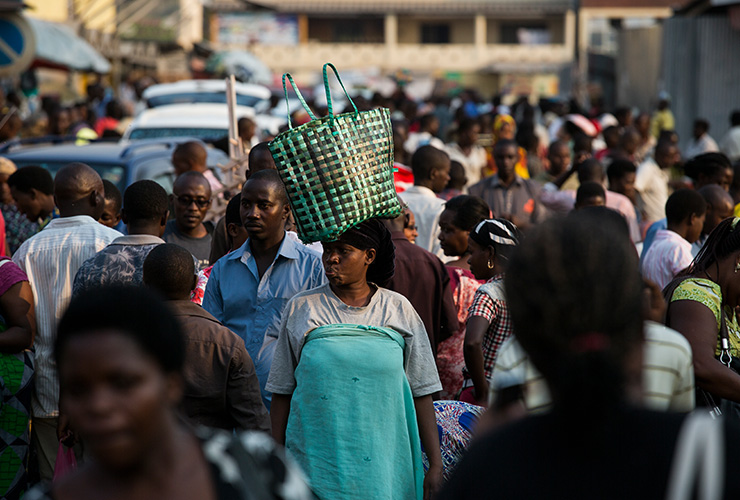Tensions are running high in Burundi as citizens head to vote in presidential elections. In the run-up to the vote, members of the governing CNDD-FDD party have attacked critical media and the opposition, and a ruthless militia has expanded its power.
The Arusha Accords, which were signed in 2000 to end the country’s seven-year-long civil war, have lost significance under the CNDD-FDD’s rule, observers say. The aim of the Accords was to reconciliate the ethnically divided country of Hutus and Tutsis through, among other measures, a power-sharing formula, constitutional checks on power and a more politically diverse military. However, the ruling party has backtracked on the Accords by concentrating power in the hands of the president as well as blocking access to the country to U.N. observers.
“With the Accords buried, any chances of Burundi being at peace are buried as well”, the chairman of the Burundi Union of Journalists, Alexandre Niyungeko, told the International Press Institute.
Moreover, the government has adopted an aggressive stance toward independent media in the country, which Niyungeko said has led to physical attacks, including the total or partial destruction of four radio broadcasters’ stations in 2015 following an attempted coup, and the exodus of over 100 hundred journalists now living in exile.
“There have also been killings of journalists, one in 2015 and one in 2016, and the imprisonment of four journalists who work for the newspaper IWACU”, he said “I can say now that independent journalists still in the country are living in fear. There is no press freedom in Burundi and what we are now seeing is that the government dictates the way that the media can operate in Burundi”.
The four imprisoned journalists, Egide Harerimana Christine Kamikazi, Térence Mpozenzi, and Agnès Ndirubusa, were sentenced in late January this year for “undermining state security” to two-and-a-half years in prison. A source close to the journalists told IPI they are demoralized and are languishing in deplorable conditions.
Bans on media, unions, and civil society groups
The government has already banned two international media outlets, Voice of America and the BBC, from operating in the country. The journalists who worked for these outlets have also been banned from working as journalists in Burundi.
In preparation for the upcoming elections, the ruling party has taken drastic measures to stifle freedom of expression in the country. According to Niyungeko, the country’s electoral commission is made up exclusively of members from the ruling party and only election-related information disseminated by the commission is to be printed by the media.
“Our union itself has been banned from operating in the country as have the local civil society organizations that provided election monitoring in the previous elections. Now, there is no monitoring, so the upcoming elections are, in my opinion, just a way for the ruling party to keep a hold on to the power they have”, he said.
Suffocating atmosphere for independent media
A Burundi-based editor with whom IPI spoke agreed with Niyungeko’s assessment of the threatening and suffocating atmosphere in the country. “In the run-up to this year’s elections, there have been constant efforts by the government to muzzle independent media, to prevent them from covering independently the whole upcoming electoral process”, the editor, who requested anonymity out of fear of retaliation, said.
But while media in the country are being severely harassed, independent reporting still exists. The newspaper Iwacu continues to provide critical coverage of the government – for which it faces escalating retaliation. The four journalists sentenced in January all worked for Iwacu. In recent weeks, Burundi’s National Communication Council has wielded its extensive powers to pressure the outlet. Local observers say whenever the paper reports cases of persecution or attacks against opposition party members, it is accused of fuelling conflict or publishing biased information.
Disappearances and killings, courtesy of the Imbonerakure
Detractors and critics of the ruling party face another danger in the form of the ruling party’s youth wing, called Imbonerakure.
“The Imbonerakure is a militia operating with impunity in Burundi”, Niyungeko explained. “For them, there is no law that they would respect, nor any person or institution that they respect. They are there to arrest, to harass and to intimidate people. The people fear the militia because if you do not choose the government’s candidate in the elections, the militia will kill you.”
In 2019, the head of the militia was nominated to lead the state broadcaster RTNB. The numerous crimes linked to the militia have been widely documented but so far the organization has been allowed to carry out its violent attacks with impunity.
When the international community looks away
The problems in the country and its politics have become systemic, the editor who requested anonymity told IPI.
“It is hard to tell if the situation will improve because, although the leadership may change, the ruling system is highly likely to remain the same and this gives little hope that press freedom will improve in the coming days. We hope for the best though”, the editor said.
Niyungeko does not see much hope for improving the situation, at least not in the near future.
“At this moment, the international community does not care about the situation in Burundi. They know what is happening there, but do not act. Maybe they will notice and come in when a genocide happens. Until then, maybe there is no interest in acting in Burundi, but now we can only hope that the crisis will come to an end. After all, nothing does not have an end”, he added.
